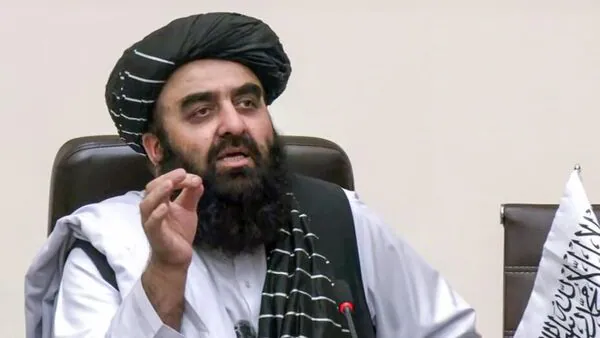
Taliban FM Amir Khan Muttaqi Visits Darul Uloom Deoband. What's The Islamic Seminary's Link With Afghanistan?
The administration at the seminary said that Muttaqi will also address people at the seminary at 3 PM today.
Also Read | India denies role as row erupts over Taliban min's 'ban' on female journalists"He is a guest of the country. We have to take care of him. In his program today, he will address the students and general public," Ashraf Usmani, Media In-Charge of Darul Uloom Deoband , told news agency ANI.
About the Islamic SeminaryDarul Uloom Deoband is an international Islamic seminary founded in 1866 in Deoband, India, known for its extensive Islamic education, significant influence, and adherence to orthodox Sunni Islam and the Hanafi school of jurisprudence. It was established on 31 May 1866, in the aftermath of the 1857 revolt, through the efforts of Sayyid Muhammad Abid and Muhammad Qasim Nanautawi.
The seminary is highly regarded by many Taliban leaders. Several Taliban commanders and leaders studied at Darul Uloom Haqqania in Pakistan's Khyber-Pakhtunkhwa province , which was founded on the same lines as Darul Uloom Deoband.
Deoband-Afghan TiesMaulana Abdul Haq, who founded Darul Uloom Haqqania, studied and taught in the seminary in Deoband before Partition in 1947. His son, Sami- Haq, is referred to as the“Father of the Taliban” because of Darul Uloom Haqqania's role in grooming Taliban commanders and leaders.
The relationship between Deoband and Afghanistan is a centuries-old one. Even before Partition, Deobandi scholars had been engaged in Afghanistan in both political and religious matters, according to experts.
Also Read | 10 key things India is offering Afghanistan's Taliban governmentDuring the famous Silk Letter Movement (1913–1920), Deobandi clerics sought to forge alliances with the Ottoman Empire , Afghanistan, and the German Empire to challenge British rule in India, according to Soumya Awasthi, Fellow, Centre for Security, Strategy and Technology at the Observer Research Foundation (ORF).
Shared intellectual networksThe Silk Letter Movement was led by Deobandi Muslim scholars, including Maulana Mahmood Hasan and Maulana Ubaidullah Sindhi, and aimed to overthrow British rule by forming alliances with countries such as the Ottoman Empire, Imperial Germany, Afghanistan, and Russia.
The relationship between Deoband and Afghanistan is deep and long-standing.These links left a lasting imprint on Indo-Afghan religious and political consciousness, binding the two societies through shared intellectual networks, Awasthi wrote recently.
"From the late nineteenth century onwards, Afghan scholars were among the earliest foreign disciples to study at Deoband, returning to Kabul, Kandahar, and Khost to establish madrasas modelled on its curriculum and teaching style. These institutions helped embed the Deobandi ethos defined by scholarship, austerity, and strict adherence to classical texts within Afghan religious life ,” she wrote.
India on Friday announced the upgrading of its technical mission in Kabul to the status of an embassy and pledged to renew its development works in Afghanistan. External Affairs Minister S Jaishankar also appreciated the Taliban's setup for showing sensitivity towards New Delhi's security concerns .
Also Read | India will reopen Kabul embassy soon for 'closer cooperation' with Taliban: EAMJaishankar made the twin announcements during his wide-ranging talks with Afghan Foreign Minister Amir Khan Muttaqi , who landed in New Delhi on Thursday on his first diplomatic visit to India.
India had withdrawn its officials from its embassy in Kabul after the Taliban seized power in August 2021. In June 2022, India re-established its diplomatic presence in the Afghan capital by deploying a“technical team”.
Legal Disclaimer:
MENAFN provides the
information “as is” without warranty of any kind. We do not accept
any responsibility or liability for the accuracy, content, images,
videos, licenses, completeness, legality, or reliability of the information
contained in this article. If you have any complaints or copyright
issues related to this article, kindly contact the provider above.


















Comments
No comment